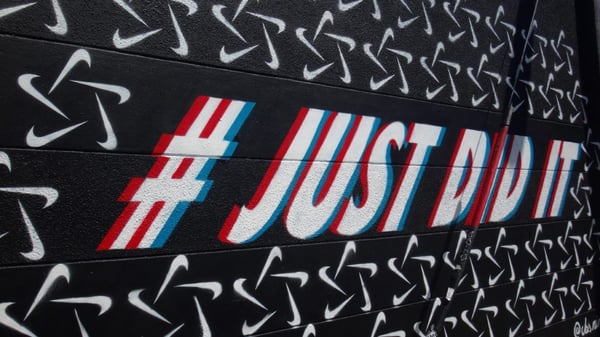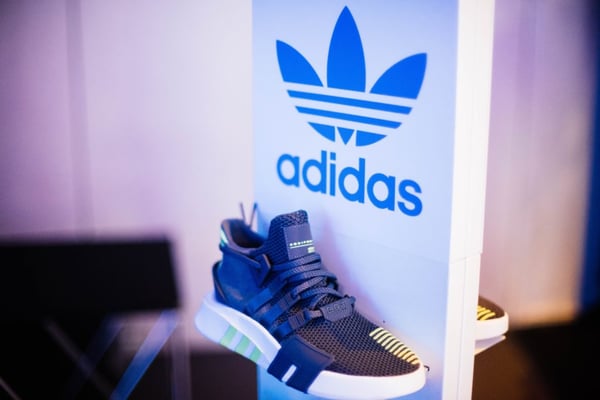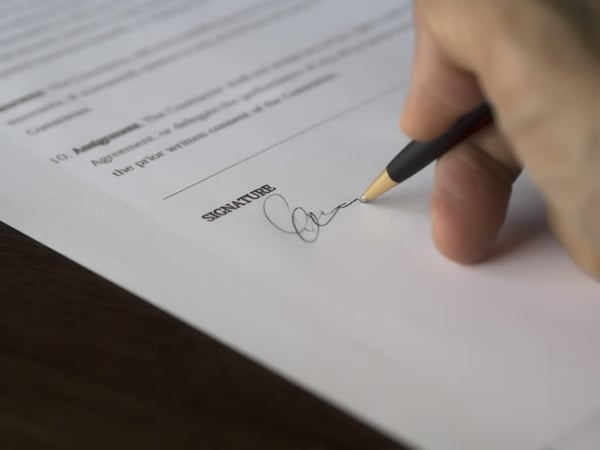Copyright Facts for Your Startup Business
As touched upon previously, a copyright is a kind of legal protection that's provided to artists, authors, and businesses as a means of allowing them to control their creative works. When your startup places a copyright on some marketing materials that you've created, you'll have full control over the presentation, production, and distribution of these materials. If anyone attempts to infringe on this copyright, it's likely that you will have legal recourse to file a lawsuit against the individual or company in question. For the marketing materials, instruction manuals, or sales brochures that you create for your company, the copyright that you acquire will likely last for the life of the author plus an additional 70 years. Since a copyright lasts for a lengthy period of time, you won't need to worry about renewal.

Keep in mind that a copyright is aimed at protecting a form of expression as opposed to the actual subject matter of the expression. If you've created a product with your start, the copyright doesn't provide legal protection to the product. Instead, it provides protection for all of the advertising, photographs, website content, and videos that you create for the product.
When you want to register a copyright, you must do so with the Copyright Office of the Library of Congress. It's important to note that registration isn't required in order for you to own a copyright. The initial creation of the original work is oftentimes enough to begin ownership. However, a copyright will provide you with more security and protection for the work.
How Do I Copyright My Creative Work?
When you wish to copyright a creative work belonging to your company, you can apply at the Copyright Office of the Library of Congress via an online registration or a hard-copy registration that you send through the mail. The standard processing time for an electronic registration is around three months. On the other hand, the average processing time for a hard-copy is upwards of 10 months, which is why it's highly recommended that you apply online. Make sure that you fill out the application correctly if you want the process to be completed quickly. As mentioned earlier, a copyright is meant to last for the life of the author plus 70 years, which means it won't need to be renewed in your lifetime.
If you find that a person or company has infringed upon your copyright, you will have the ability to open litigation by bringing a copyright infringement lawsuit to federal court. In order for your lawsuit to be effective, it's important that you can prove that your creative work was copied wholesale or that the main elements of the work were used by someone else. Copyright registration is not necessary for you to be able to bring a lawsuit to court.
Should I Trademark My Logo?
A trademark is something that distinguishes or identifies the source of services or goods in the market. When you place a product or service onto the market, the logos or words that identify this product/service will need to be trademarked. A trademark can include logos, words, designs, symbols, or phrases. Once you've filed a trademark, you'll be able to fully protect the trademark, which means that you can prohibit other individuals or companies from using it for a similar good or service.

A trademark is very important for your business because it basically allows you to protect your brand image. For instance, the Nike swoosh symbol, the "Nike" name, and the Nike slogan of "Just Do It" are all trademarked. The brand power that Nike has because of their symbol and slogan is beyond estimation. If you don't trademark a logo or a brand name, it's possible that someone else will do so once your product or service has been released on the market, which means that you would likely be required by law to remove your product or service from the market.
The main items that you should obtain trademark protection for include any logos related to your brand or products, business names, slogans, and taglines. Names like Disney, Toyota, and Coke are all trademarked. If you gain a good reputation for your product or brand, you'll reap many benefits from trademarking specific elements related to the product/brand. Once you've acquired a trademark for your logo, you'll be able to stop other individuals from using the logo or from using a logo that's very similar to your own and could create confusion on the market.

How Do I Trademark My Logo?
When you want to trademark your logo, you'll need to file an application at the U.S. Patent and Trademark Office. The application process will likely take around 45-60 minutes to complete. Before you go about filling out this application, it's recommended that you first check the Trademark Electronic Search System to make sure that another company hasn't already registered a trademark for the same thing. While it's unlikely that you will run into any issues, taking this extra step before filling out an application will keep you from encountering costly problems down the road.
Even if you don't search this database, the U.S. Patent and Trademark Office will likely catch and reject your application if the slogan or logo has already been trademarked. The online fees for a trademark registration range from $275-$325. When you fill out the application, some of the information you'll need to provide includes the categories of services or goods for which the trademark will be used, a possible design component to the trademark, and a date for when the mark was first used in commerce. A response to your application will be provided within six months of the initial filing date.
Provisional vs. Non-Provisional Patent
When you have an idea for a product or service, you'll likely want to patent that idea. The two primary types of patents available to you areprovisional patents and non-provisional patents, both of which are beneficial and may apply to your situation. A provisional patent application is easy to file if you need quick legal protection for an idea that you've just had for your business. These patents are designed to only last for a single year, which provides you with the opportunity to perform more research or complete the invention.

Provisional Patent
The best aspect of a provisional patent is that it costs much less to obtain than a non-provisional patent. There are also very few formalities when it comes to these patents, which means that the idea you patent can be very fluid with numerous variables that you'll continue to research over the next year. However, anything new that you add to your idea that wasn't included in the provisional patent won't receive full patent benefits when you apply for a non-provisional patent. You will have a year to convert the provisional patent into a non-provisional one. As such, the non-provisional patent application you send in must reference the provisional patent.
Non-Provisional Patent
A non-provisional patent requires a lengthy and complicated application process. Each part of the application comes with many rules that you'll need to follow if you want to be provided with the patent. While a provisional patent isn't legally enforceable, a non-provisional one is. Once the idea that you've patented with a provisional patent has been formed into an actual product, this product and the idea for it can be protected when your application for a non-provisional patent has been approved by the United States Patent and Trademark Office.
Unless you're filing a patent application for an ornamental design for one of your products, you'll likely be obtaining a utility patent, which lasts for 20 years. You can file both patent applications online. The fees for a provisional patent range from $65-$260 depending on the size of your business. Additional charges of $100-$400 can occur if your patent is complex and extends past 100 pages. A non-provisional patent can cost anywhere from $5,000-$15,000 to apply for depending on the complexity of the invention.
Patents are very important for startups that want to experience initial success and continued growth. If the market that your startup operates in is a competitive one, it's important that your ideas for a product are legally protected with a patent. If you've had what you believe to be an amazing idea for a product, not obtaining a provisional patent means that there's a high risk that another company will think of a very similar idea and patent it before you release your product on the market, which will waste invaluable time and money. Since provisional patents for ideas are inexpensive, there's no reason not to file one.

Conclusion
While copyrighting, trademarking, and patenting your start business may be a lengthy and costly process that you'd rather avoid, it's essential for the continued growth of your startup business. By filing the proper trademarks, patents, and copyrights, you should be able to avoid legal issues in the formative years of your startup. Businesses that haven't obtained the proper patents or trademarks can be drawn into legal battles that could cause them to go bankrupt in a worst-case scenario, which is something that you'll want to avoid.
If you're interested in starting a med-tech or bioscience business and need some space for your team at Orange County's first wet laboratory, contact University Lab Partners today to learn more about the types of space you could apply for.
Revised 11/18/2020




